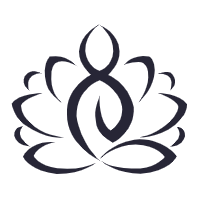The ancients said: “If a man does not serve himself, he will be punished by heaven and earth.” How should we explain this?
“Excuse me, which ancient person said this sentence? I’m afraid I can’t find it even in “Cihai”. Because of my limited knowledge, the first time I heard this sentence was in the modern Peking Opera “Red Lantern” during the ten years of catastrophe. “”, the Japanese invader Hatoyama said this sentence when he persuaded Li Yuhe to betray the motherland, which is used by the devil to pull people into trouble. In the dictionary, “诛” means to kill or punish, here it is used as “无” or “无” “Nothing” means “nothing” after death, “nothing”. “Extinction” means completion, exhaustion, and emptiness.
Therefore, the correct understanding of the meaning of “If people do not seek their own interests, heaven and earth will destroy them” should be: if people can no longer seek their own interests, the sky will be gone and the earth will be empty. In other words, the explanation is: If you don’t care about yourself and focus on benefiting all sentient beings, then heaven and earth will have no control over you. You will be “beyond the three realms and not in the five elements”, transcending the ordinary and becoming holy. “
The true meaning of “If a person does not cultivate himself, he will be destroyed by heaven and earth.”: If a person does not cultivate himself, he will be destroyed by heaven and earth.
“If a person does not serve himself, heaven and earth will destroy him.” Wei means cultivation, correct mind, governance, and handling. Heaven and earth will destroy him. It is a parallel structure, which means heaven and earth will destroy him. To put it more simply: if people don’t cultivate themselves, it will be intolerable to the laws of nature! Many people explain that if a person does not seek personal gain for himself, then heaven and earth will punish him. God is the embodiment of fairness in Chinese and traditional Chinese culture. This doesn’t make sense! Could God be so confused?
There is evidence from the Analects of Confucius.
- Confucius said: “People are for themselves, and today’s scholars are for others” (The Analects of Confucius, Xianwen Chapter 14). So we boldly guess that “If people are not for themselves, heaven and earth will destroy them” may have evolved based on Confucius’s words! But the tone is more Strict and straightforward! Because it is the language of the common people. Xunzi said: “When it enters the ears, it comes out of the heart, it is for oneself; when it enters the ears, it comes out of the mouth, it is for others.” Here we talk about the relationship between people and oneself. The teachings of sages require respect and careful consideration in order to understand one or two of them. Therefore, Qian Mu, the master of Chinese traditional culture, told us that we must have respect for the ancients and not misinterpret the good intentions of the ancients.
- We know that the word Wei has two pronunciations, Yangping and Qu. For example, as a person, as a student, etc., it is Yangping. It means practice. For, the falling voice means the object is followed by the preposition, for example, serving the people, buying a book for you, etc.
In this way, this sentence is easy to understand. If a person does not cultivate himself, (Heaven here is the principle mentioned by Zhu Zi, the principle of heaven,) the principle of heaven will cause this person to perish. In current terms, this person will be abandoned by history and the people! What good words of wisdom this is! I think the purpose of the ancients uttering this sentence was probably to express emotion because the Taoist general was no longer good and the world was declining, so the tone was rather harsh! Let’s not talk about the ancients, let’s take the examples around us. How many corrupt officials were punished by heaven and earth because they did not cultivate themselves (for themselves). In fact, it was not the law that sanctioned them, but the laws of nature. The law enforcers just acted in accordance with the laws of nature. .
We know that the ancients always talked about “cultivating Qi Zhiping”, so the meaning of this sentence is also consistent with what the ancients said. If it is interpreted as: If a person does not seek profit for himself, God will punish him. This sentence makes no sense, and is not in line with the essence of traditional Chinese culture, so it cannot become popular. However, some people now use it as a motto of individualism and money worship. Isn’t it a shame?
